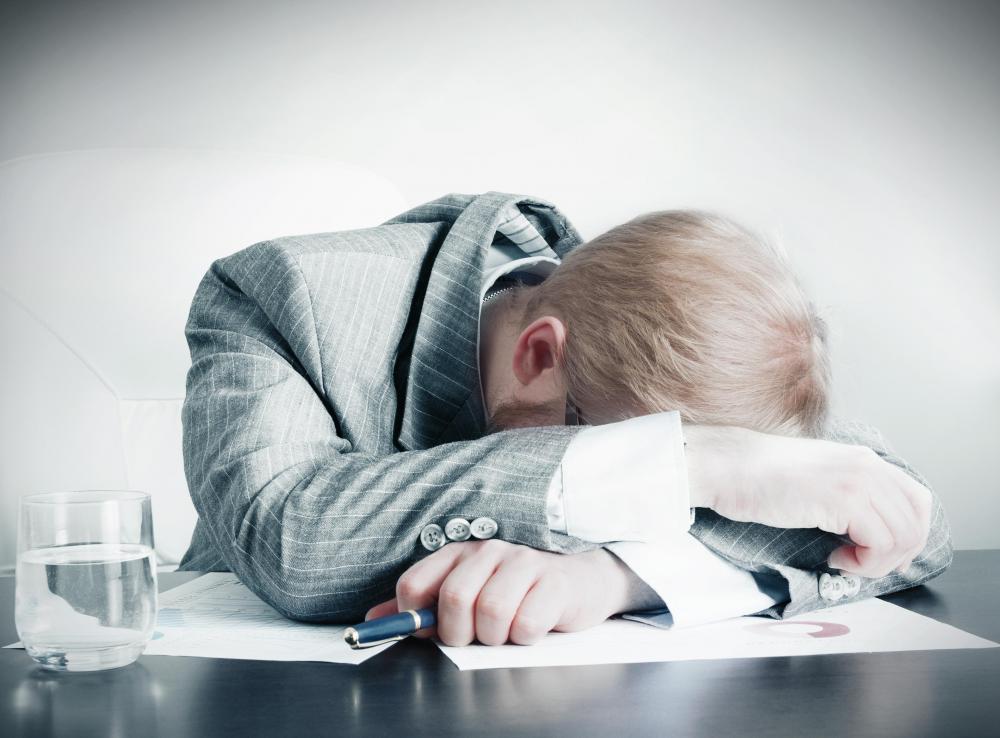At WiseGEEK, we're committed to delivering accurate, trustworthy information. Our expert-authored content is rigorously fact-checked and sourced from credible authorities. Discover how we uphold the highest standards in providing you with reliable knowledge.
What Is the Apnea-Hypopnea Index?
Sleep apnea is a medical condition characterized by interruptions in breathing, called apneas, during sleep. Hypopneas are similar to apneas but represent shallow breaths compared to the almost entire stop in breath of the apnea. Individual people can have varying degrees of sleep problems, and so a doctor may check how many apneas and hypopneas a person has over the period of sleep to assess the seriousness of the condition. This is known as the apnea-hypopnea index, and contains an average of all the breathing problems throughout the night per hour.
Brief interruptions in breathing are normal, but when a person experiences more than the usual amount of breathing issues during sleep, he or she may suffer daytime tiredness, high blood pressure and even cardiovascular disease. Apneas represent either a complete pause of breathing for ten seconds, or an almost complete stop in breathing, which brings in less than about a quarter of the air in a normal breath. In fact, the word apnea stems from the Greek words for "without breath." Hypopneas, on the other hand, are abnormally low breaths, where only about 70% or less of the normal air is taken in.

A reduction in air intake due to abnormal amounts of apneas and hypopneas may have significant effects on the level of oxygen circulating in the blood. The body uses oxygen to help drive cell metabolism, and it is essential to life. Therefore, the body has evolved mechanisms to ensure enough air enters the body, even when a person is sleeping. These interruptions in breathing may cause the body to wake up entirely, or to go into a less intense level of sleep. Daytime sleepiness and an inability to concentrate may therefore occur due to lack of proper sleep.

Doctors can check a person's breathing over a period of sleep for the amount of apneas, hypopneas or both that occur. An apnea-hypopnea index includes both of these events, and is calculated by dividing the total occurrences by the number of minutes the person was asleep, and then multiplying this answer by 60. The result of an apnea-hypopnea index therefore represents the number of these events per hour on average.

Typically, a healthy person displays a few events over each hour of sleep, and so has a low apnea-hypopnea index. Although the defined limits of mild to severe sleep apnea disease can vary according to the specifications of individual health authorities, an example of a severe case may produce an apnea-hypopnea index of 30 events per hour or more. The severity of the condition can dictate which medical interventions may be used, which, for the most serious cases, may require surgery.
AS FEATURED ON:
AS FEATURED ON:















Discuss this Article
Post your comments